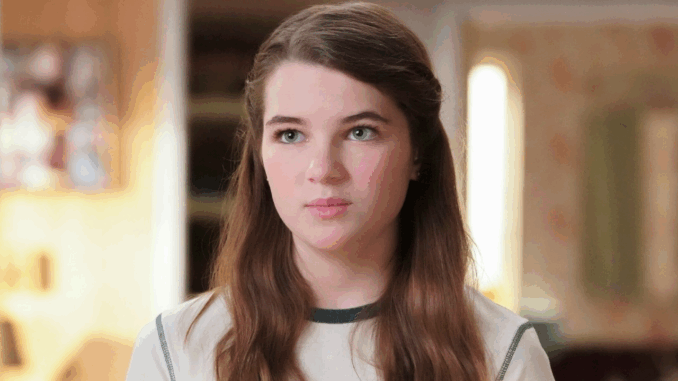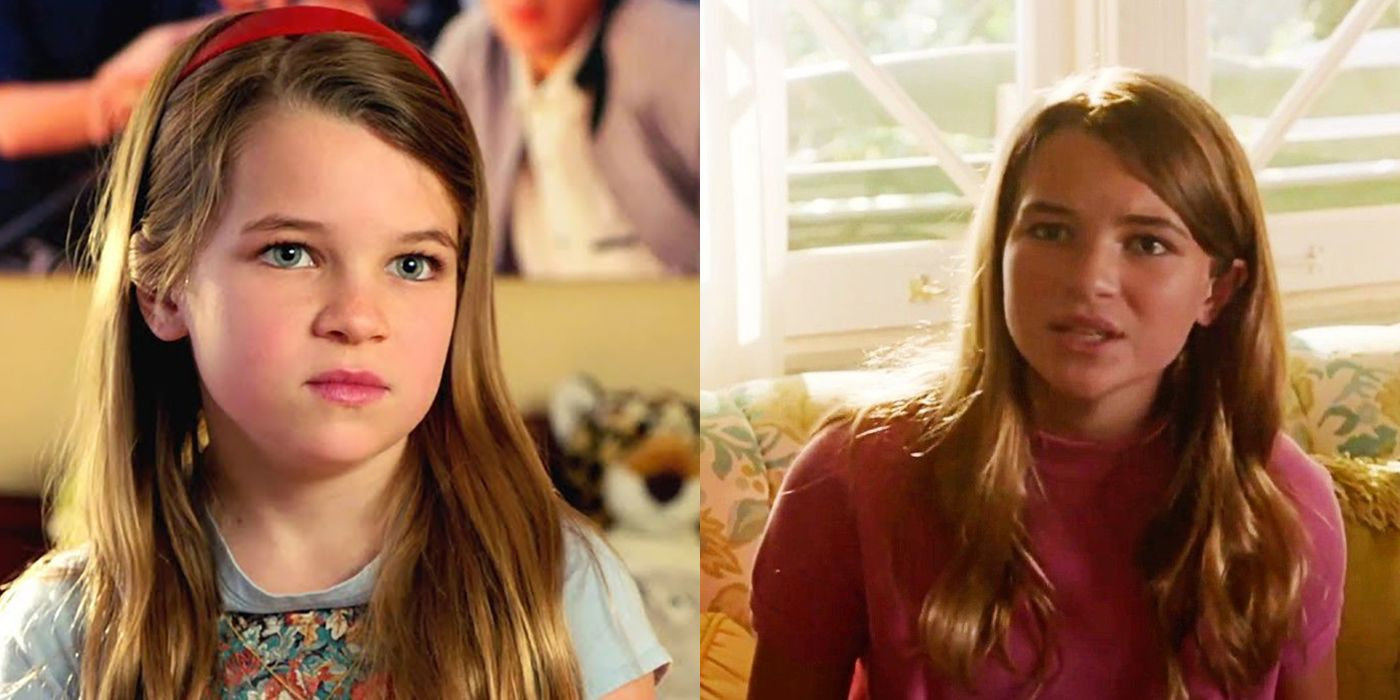
Introduction: A Missed Opportunity Becomes Clear
If you’ve been following Young Sheldon closely, you’ve probably noticed something frustrating—Missy Cooper constantly gets the short end of the stick. While Sheldon’s quirks and Georgie’s mishaps get full arcs and redemption, Missy’s struggles are usually swept under the rug. For years, fans have asked: Why does the show ignore her?
Well, a new reveal about Missy’s future in The Big Bang Theory universe has finally given us a painful but eye-opening answer.
Let’s break down what changed, how it explains years of poor treatment, and why it still doesn’t feel fair.
The Reveal That Changes Everything
What We Learn in The Big Bang Theory Timeline
If you’ve watched The Big Bang Theory, you know that adult Missy only appears a handful of times. And when she does, it’s clear her life didn’t exactly turn out well. She’s portrayed as divorced, underappreciated, and still living a life of missed opportunities.
Young Sheldon Hinted at It, But Now It’s Confirmed
Recent episodes of Young Sheldon began dropping breadcrumbs: Missy’s growing rebellion, her disillusionment with her family, her quiet resentment. These weren’t just dramatic teen phases—they were laying the groundwork for her adult disappointment.
Missy Was Never Meant to “Win”
Her Arc Was Always Tragic, Quietly
Now it makes sense. Missy was written as the “normal” sibling. No genius label. No massive life crisis. And because of that, she was constantly overlooked by both her fictional family and the show’s writers.
That “Normalcy” Became Her Undoing
While Sheldon and Georgie were given unique roles that shaped their futures, Missy was stuck in a narrative limbo. Her story didn’t fit into the sitcom formula. So, she was treated as an afterthought—even though she had the potential to be the most relatable Cooper.
Why the Writers Let It Happen
Playing the Long Game—or Just Forgetting Her?
Some might argue the writers were setting up a long-term arc—a girl who fades into the background as a teen, only to have a complex adult life off-screen. But if that was the plan, they never truly honored it.
Missy Became a Narrative Sacrifice
The show often needed someone to contrast Sheldon’s eccentricities or balance out the drama. Missy filled that role. She was the “anchor” character, which meant she couldn’t drive the story—she could only support it.
How Missy’s Teenage Rebellion Foreshadowed Her Future
The Cracks Were Always There
In Young Sheldon’s later seasons, Missy starts spiraling—skipping school, acting out, questioning religion. It’s subtle, but powerful. And now, looking back, it feels like the writers were quietly telling us: This is a girl no one really saw, and it’s going to cost her.
A Teen in Crisis—Ignored by Everyone
What’s most heartbreaking is how normal her pain was. Unlike Sheldon’s meltdowns or Georgie’s pregnancies, Missy’s issues were small, slow-burning—and easily dismissed by her family and the audience alike.
The Family Dynamic Didn’t Help
Sheldon Got the Attention, Georgie Got the Trouble
Every family has its spotlight child and its problem child. Missy? She was neither. She was the filler in between. Loved, yes—but rarely prioritized. George and Mary always had their hands full with Sheldon, while Georgie’s chaos forced constant parental intervention.
Missy Learned to Fade In—and Then Out
Over time, she adapted. Less seen. Less heard. And that silence slowly turned into resentment. You could see it in her eyes—even when she smiled.
Missy’s Role in The Big Bang Theory Was a Final Clue
Her Adult Life Was Already Set in Stone
When adult Missy appears in The Big Bang Theory, she’s going through a divorce and living a life that’s clearly not what she once dreamed of. The bright, bold girl we met in Young Sheldon didn’t get her happy ending.
And the Show Never Tries to Change That
What’s wild is that Young Sheldon had every chance to rewrite or deepen Missy’s future. But instead, it leaned into the inevitability of her disappointment. And that’s what makes it so gutting.
Why Fans Feel Let Down
We Saw Ourselves in Missy
Not everyone is a boy genius or a teenage father. Most of us are like Missy—smart in our own way, navigating a loud, chaotic world that rarely slows down to listen.
And Seeing Her Silenced Hurts
Her story could’ve been the emotional heartbeat of the show. But instead, it was muffled—like her voice in her own family.
Could The Writers Still Make It Right?
A Redemption Arc in a Spinoff?
If the Georgie and Mandy spinoff includes Missy, there’s a real chance to course-correct. Show her rebuilding, reconnecting, maybe even rising above the expectations her family set for her.
Or Give Her a Standalone Story
Even better—give Missy her own show. Let her tell her story in her voice, not as a sidekick to her brothers.
Missy Deserved More
She Was Smart, Funny, Real
Missy wasn’t a genius. She wasn’t a wreck. She was us. And instead of celebrating that, the show treated her like background noise. But the fans never forgot her—and we see now why it hurt so much.
Conclusion: A Tragic Arc Hiding in Plain Sight
The new clues about Missy’s future reveal what’s been brewing all along: Young Sheldon never gave her the arc she deserved. Her pain was slow and quiet, her struggles relatable but invisible. Now we understand—it was all leading to a sad, underwhelming future the show never tried to fix.
But we’re not done rooting for her. Whether in a spinoff, flash-forward, or entirely new series, Missy Cooper’s story deserves a second chance.
5 Unique FAQs
Q1: What new reveal explains Missy’s poor treatment in Young Sheldon?
A1: It ties to her future as shown in The Big Bang Theory, where she’s portrayed as divorced and struggling—suggesting the writers always saw her life heading in a disappointing direction.
Q2: Was Missy’s character always meant to be tragic?
A2: Not necessarily—but recent episodes and her adult portrayal imply that the writers subtly guided her toward a quieter, more difficult life.
Q3: Why did the show focus less on Missy than on Sheldon or Georgie?
A3: Because she didn’t fit into the “extreme” character mold—she was the grounded middle sibling, often overlooked by her family and the narrative.
Q4: Can the upcoming spinoff fix Missy’s arc?
A4: Definitely. If she’s included, writers have a chance to give her growth, independence, and maybe even happiness.
Q5: Will fans get more of Missy in future shows?
A5: Nothing is confirmed yet—but fan demand for more Missy stories is growing fast. CBS should be paying attention.
